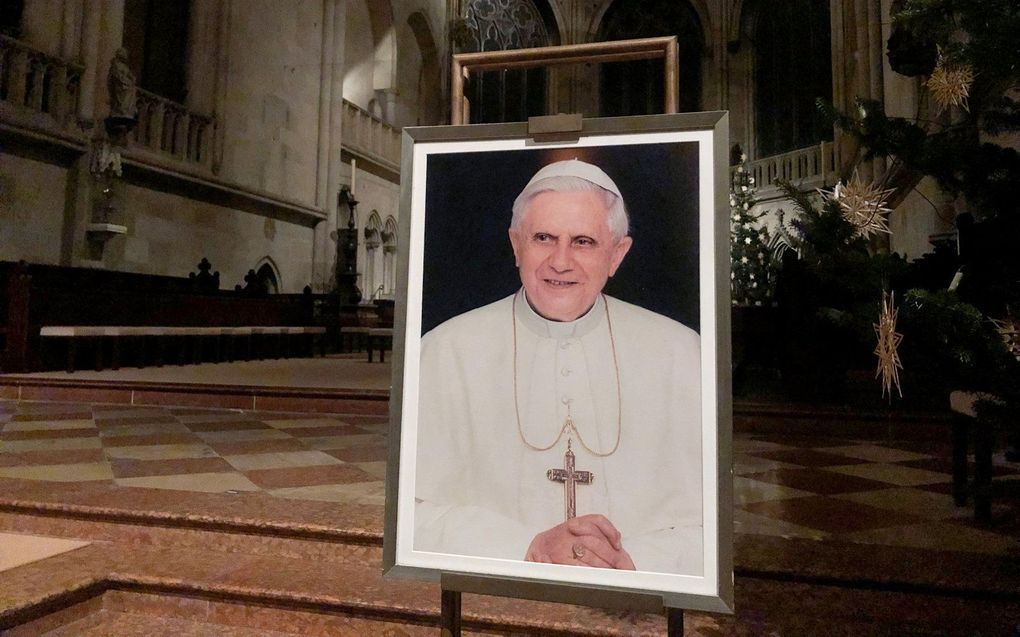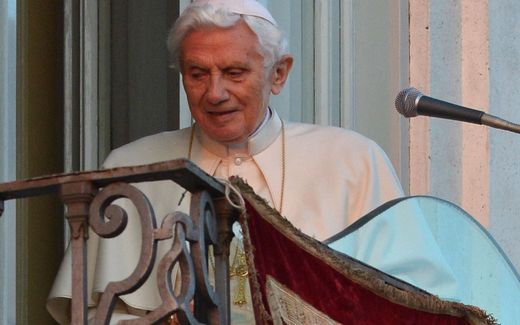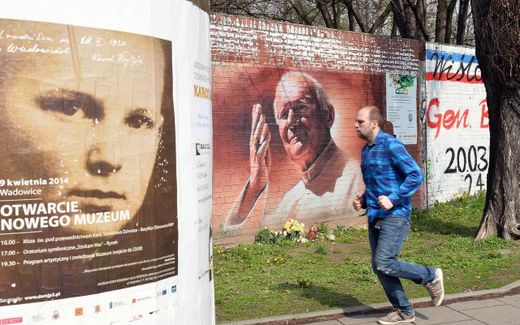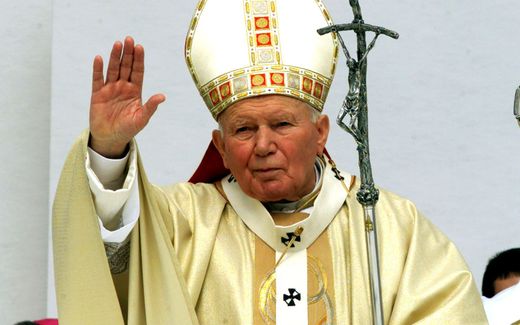Pope Benedict: going against the tide
31-12-2022
Southern Europe
Maarten Stolk, RD

A photo of the former pope in a church in Regensburg, Germany. Photo AFP, Florian Cazeres
Southern Europe
Pope Emeritus Benedict XVI (1927-2022), who died Saturday on New Year's Eve, was known as a conservative theologian who often went against the flow of his times. This earned the Roman Catholic Church leader both appreciation and criticism, including from Protestants.
Rarely have Benedict XVI's words been so weighed down as they were in September 2011. That month, the pope visited Erfurt in his native Germany. Would he restore the reformer Martin Luther, who had been condemned as a heretic by the Church of Rome in 1521?
It didn't come to that. Benedict XVI –born Joseph Ratzinger in 1927– opted for substance and spoke appreciatively of Luther's theology. His question, "How do I get peace with God?" should become the question of all people, the head of the Roman Catholic Church said.
Teachings
Pope Benedict XVI looked like a stiff man, a study-room scholar. The former head of the Vatican's Congregation for the Doctrine of the Faith was involved in, among other things, drafting the Catechism of the Catholic Church. With his books on Jesus of Nazareth, he garnered appreciation among conservative Roman Catholics as well as Protestants. A series with content and spirituality.

Meanwhile, Benedict XVI adhered uncompromisingly to classic Roman Catholic doctrines, such as Mary, the papacy, the sacraments and the church.
Obstacle
Like Cardinal Ratzinger, he was an outspoken supporter of the 1999 joint declaration of Roman Catholics and Lutherans on justification. This stated, among other things, that the Lutheran doctrine of justification differs in certain respects from that of the Church of Rome but is no longer an obstacle to ecumenical unity.
A year later, Ratzinger declared in the document "Dominus Iesus" that only the Roman Catholic Church can bring complete salvation. Other Christian denominations, such as the Protestants, were not, he said, "churches in the full sense."
Benedict conducted a dialogue with others but from his own conviction. He said Europe was in a deep crisis because it had left God and spiritual emptiness. He saw the Church of Rome as the guardian of truth and had nothing to do with relativism, which he said was "the greatest problem of our time."

In 1986, for example, Ratzinger criticised Pope John Paul II, who had invited the world's leading religious leaders to an interfaith meeting in the Italian city of Assisi. He strongly rejected the message emanating from it: the equality of all religions.
The pope came under fire in 2006 when he suggested a link between Islam and violence during a speech in Regensburg, Germany. He cited a statement by a Byzantine emperor about spreading Islam with the sword. That set off a lot of bad blood among Muslims. The pope later expressed regret that his words had been misunderstood, but he made no apology.
Abuse
Benedict XVI reacted late to the abuse scandal that still grips the Roman Catholic Church. Only in 2010 did a pastoral letter appear in which the pope condemned the abuse of children by clergy and expressed his deep regret. Critics, however, felt the Vatican should take steps to prevent abuse and punish perpetrators.
The pontificate of "B16" lasted nearly eight years. In the spring of 2013, the then 85-year-old church leader surprised everyone by resigning, when it is customary for popes to die in harness. Francis succeeded Benedict XVI. The latter is more open than his predecessor, but there was no real change of direction. Benedict will be remembered primarily as the pope of constancy.
Life of Benedict XVI in eleven dates
Benedict XVI was the 265th pope of the Roman Catholic Church. His life in years.
1927 - Joseph Aloisius Ratzinger was born on April 16 in Marktl am Inn, in the German state of Bavaria, near the Austrian border. His father is a police officer.
1939 - Joseph Ratzinger attends the Traunsteiner Studienseminar Sankt Michael, a priestly training program for poorer students. During World War II, he is forced to join the Hitlerjugend.
1946 - Ratzinger studies philosophy and theology in Freising and Munich until 1951. During this time, he is ordained a priest.
1953 - He makes a scientific career. Ratzinger gets his doctorate on a study of Augustine's ecclesiology. Later he becomes a professor: first in Bonn (1959) and later in Münster (1963), Tübingen (1966) and Regensburg (1977).
1962 - As a theologian, Ratzinger participates in the Second Vatican Council until 1965. He is known as an advocate of change.
1977 - Ratzinger is consecrated archbishop of Munich-Freising.
1981 - The Vatican appoints Ratzinger as prefect of the Congregation for the Doctrine of the Faith. His duties include drafting the new Catechism of the Catholic Church.
2005 - A few weeks after the death of John Paul II, Ratzinger is elected the 265th pope. He takes the name Benedict, which means "blessed."
2007 - Benedict writes several theological books, including "Jesus of Nazareth." He is seen as a conservative Roman Catholic.
2013 - Benedict resigned as pope on February 28, 2013. He no longer has "spiritually and physically" the strength to perform his duties. Since then, Benedict has carried the title emeritus pope ("pontifex emeritus"). Pope Francis succeeds him.
2022 - Benedict dies in Rome. He is 95 years old.
This article was translated by CNE.news and previously published in Dutch daily Reformatorisch Dagblad on December 31st, 2022.
Related Articles





